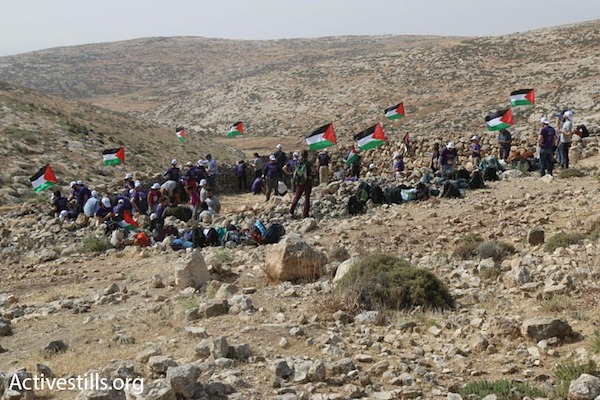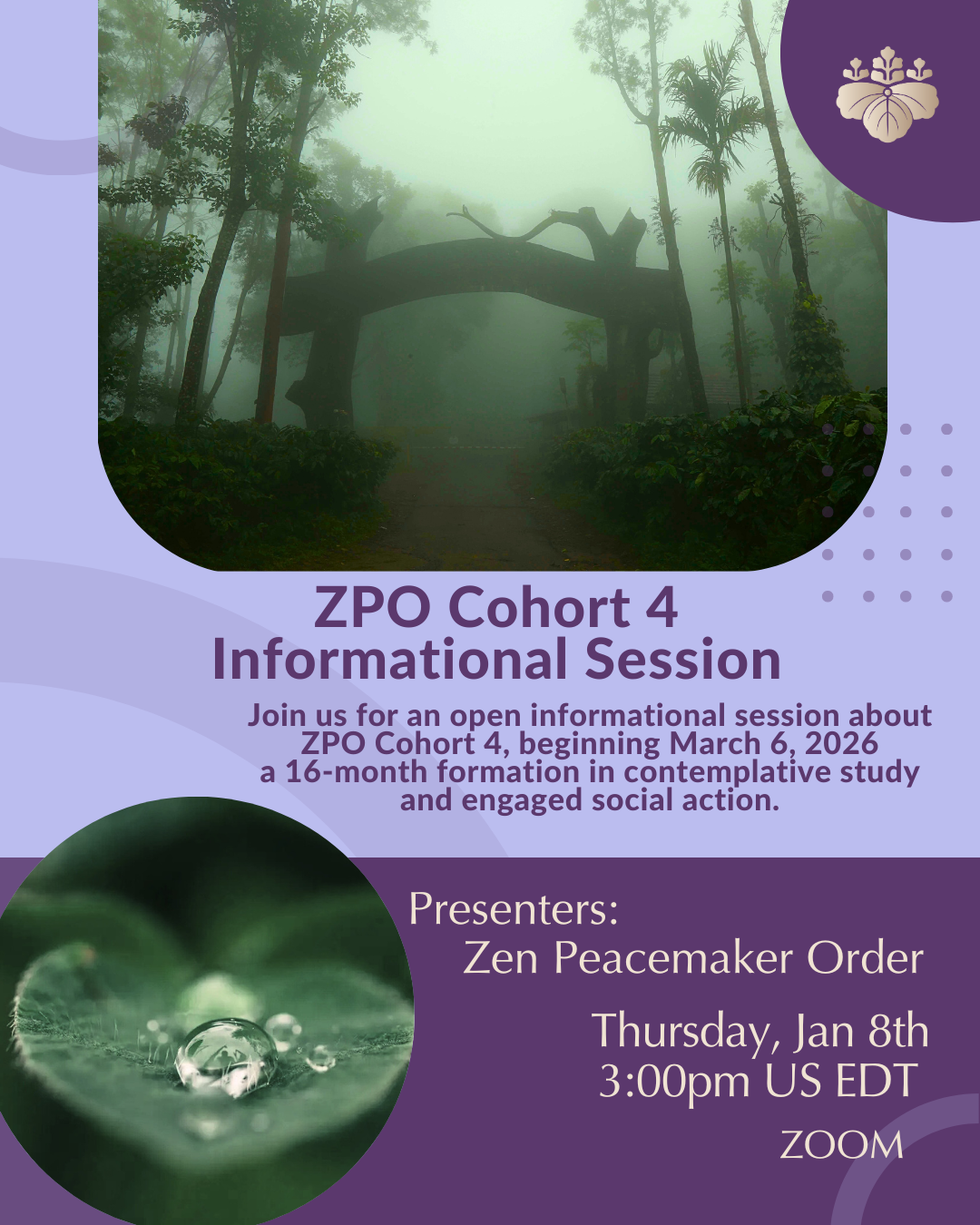Photo by Ahmad Bazz/Activestills.org; with permission.
We Are Sumud, or If You Imagine It, It Will Be
By Roshi Eve Marko
Originally appeared on www.evemarko.com on May 22, 2017
ISRAEL. When I met with Sami Awad, head of Bethlehem’s Holy Land Trust, last week he told me that just two days after I was leaving Israel a group of Palestinians, internationals, and Israelis would go to Sarura, a Palestinian village taken over by the Israeli army for military use, its families exiled, that they would put up tents, hook up generators, and create a peace camp to teach about shared values of nonviolence, the rights of people to self-determination and to land and water. The peace camp would be called Sumud, which in Arabic means steadfastness.
It sounds a little like Standing Rock, I said.
Yes, it is like that, he replied, and we both contemplated Standing Rock, the spontaneous gathering of people from so many tribes, the willingness of Anglos from around the world to support them, the checkpoints and guards, the brutal winter, and President Trump’s flourish of the pen to finish the pipeline. But Standing Rock has not ended. It continues in its path to some kind of immortality, as symbol, as myth.
Which is probably why Saturday night, just 24 hours after a group of some 70 (including many American Jews) settled in, did Muslim prayers followed by Jewish Sabbath prayers, the army came in and destroyed the first Sumud camp. They didn’t kill, wound, or arrest anyone, just came into a peace camp with guns, sticks, and helmets, threw a few punches, leveled the makeshift structures and took away the one generator. And as they did that the people said they’ll remain, rebuild, do it again. And again. And again.
What causes perfectly normal people to fly halfway around the world to go to a barren hillside in the heat of summer, put up tents, connect a generator, brave the heat and mosquitoes, and call themselves a peace camp, against major odds that they’ll get torn down very quickly? And then promise they’ll do it again? Are they crazy? Don’t they have something more practical and fruitful to do with their time? How is a small encampment of tents going to upset the enormous machinery of occupation? Who’s even paying attention on the eve of Donald Trump’s visit to the Middle East?
They may be crazy, but they also use their imagination. Sumud, like so many other acts of heartful resistance, begins as an act of the imagination. Someone dares imagine that force, occupation, discrimination, poverty, and violence can end. Someone dares imagine making a stand somewhere—in the freezing steppes of North Dakota, on a segregated city bus down South, aboard a British ship in Boston harbor to throw out caskets of tea, on the grounds of a decimated village on a stony hillside in the Hebron hills.
And here are more private acts of imagination that, in some form or other, you have taken: waking up one day to the chirping of a whippoorwill and knowing this is your last day of mind-numbing, heart-numbing work in the office though you have no idea how you’ll support the family; looking out at hills in the distance and deciding to end a marriage, notwithstanding deep fear of loneliness and poverty; holding an acorn in the palm of one’s hand, a symbol for dreams of love, and burying it in the ground.
These acts of imagination enlist the aid of the sacred furniture of life—the bird, the hills, the acorn, a razed village—which, when seen to their essence, take us beyond ourselves and our parameters of logic, help us shoot for the moon, renew the perpetual revolution. Guns, water cannons, sticks and helmets may seem to win in the short run, but over time they can’t compete with water in the Dakotas, a bus seat in Montgomery, a handful of sand in India, or a parched hillside in Palestine.
Roshi Eve Myonen Marko is one of the founding teachers of the Zen Peacemaker Order and a principal teacher at Green River Zen Center in Massachusetts, USA. She has co-led bearing witness retreats in Auschwitz-Birkenau, Rwanda and the Black Hills. Eve writes regularly in her blog and is the author of the novel The Dogs of the Kiskadee Hills: Hunt for the Lynx.



2 Responses
I was there and there were several hundred people including Palestinians, Israeli Jews, and Internationals together in this effort!
Thank you for your encouragement! We need this to sustain our own advocacy work in the Puget Sound area on behalf of justice, reconciliation and freedom with peace for all our friends in ‘the holy lands’ — and how ’bout the whole Middle East (and maybe even the whole world if we dare to dream really really big? OK, I will focus on one thing at a time…)
John Berg in Seattle area.